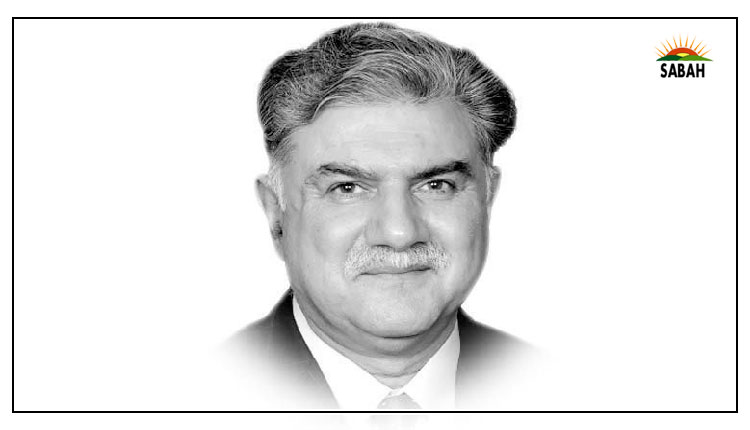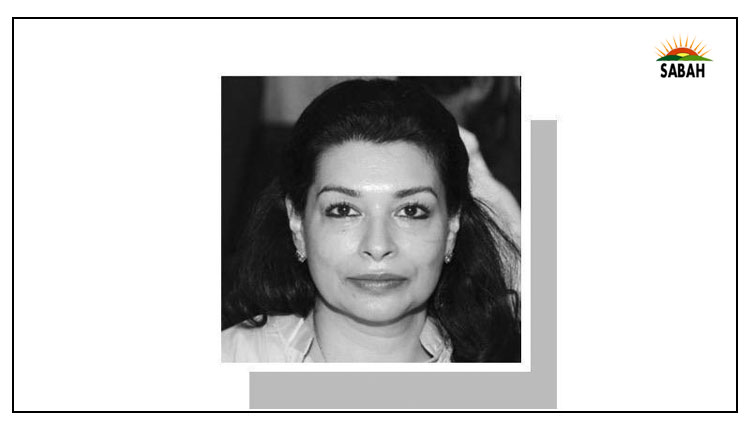From riches to rags…Dr Muhammad Ali Ehsan
We are at the crossroads of history is a typical political phrase used most unapologetically and most frequently by our leaders. Critical junctures have been a permanent part of our political discourse and whereas critical junctures always end up altering the course of history, in our case they have further cemented and boxed us in one place we are now not at the crossroads but at the bottom of a deep pit that we have dug for ourselves. In fact, we are at the bottom of the world. For the last many years there is very little going for us by the way of history, geography and politics. Our two long eastern and western borders have neighbours that have a confrontational nature, and the conflictual nature of our relationship with them inescapably and permanently boxes us in a geographic space that imposes limits to our grand geo-economics imaginations and designs. We have been dealt with a hand by nature and history but if the geography is against us should we also get our politics wrong?
We have all heard about Vasco da Gama, the Portuguese explorer who reached India by sea, but not many of us are familiar with the achievement of the Spanish explorer Vasco de Balboa who in 1513 sailed across the Atlantic and landed in a place we know today as Panama. He trekked through the jungles and over the mountains before finding another vast Ocean in front of him the Pacific. He had reached a critical juncture, and through him the mankind too. The critical juncture was the discovery of the connecting land between the Atlantic and Pacific Oceans. Four hundred years later, America was able to build 50-mile-long Panama Canal saving ships an 8,000-mile-long journey from Atlantic to Pacific that is altering the course of history.
I can use the analogy of game of cards to explain why we failed to make the right moves when faced with critical junctures in our history. Our geographic and historical position has been in what cards we were dealt by nature, but how we played these cards drove the course we took as a nation state. In the short space that I have here I would like to touch upon five important questions that have everything to do with how we played our cards.
The first is about national pride. The second is about our failure to understand that when you lose territory it is just not the land you lose but also people living in it. The third is about living in the shadow of a great power. The fourth is about the declaration of war. And the last one is about our journey from riches to rags. Although some readers will claim we were never rich. The richness I assume here is not just material but social and political as well.
National pride is about the positive effect that people feel towards their country as a result of their national identity. The last military confrontation between India and Pakistan was in Kargil in 1999. In 1999 national pride was at stake for both the countries. National pride was also at stake between Argentina and Britain in April 1982. Britain had let its guard down and Argentinian military carried out an invasion of Falkland Islands. Argentina considered this a huge success until the British forces arrived eight weeks later. They made short work of the Argentinian army and reclaimed the territory. Regardless of national pride on both sides, four things were a consequence of this war: one, the war led to fall of dictatorship in the country; two, Argentina became a democracy; three, in the following years and decades Britain has ensured that Argentinians no more think about getting to the Falkland beaches, let alone take the islands; and four, many Argentinians (Falkland Islanders) now wish to live and remain in Falkland under the British control.
Like Pakistan and India, Mexico and the US also share a 2000-mile-long border. The 1846-48 war between the two countries resulted in Mexico losing to the US its territory that is today called Texas, California, New Mexico and Arizona. Despite this tragedy, today there is no serious political movement in Mexico to regain the lost territories nor are there any border disputes between the two countries. This Mexican psychology can be attributed to three things: one, Mexicans know they are unlikely to have anything approaching the living standards of the US; two, Mexican governments struggle to control their own territories so how can it be in a position to take over more and that too from a great power; three, people living in the territory lost know they are living in the Promised Land and more and more people want to get into the US rather than any of them thinking of going back to Mexico.
Mexico has learnt to live in the shadow of a great power. It no more has any ideological or territorial ambitions. It wants to develop its own industries and seeks foreign investment in its country. Like the war on terror, it also declared a war on drugs. As Pakistan was traumatised in 2014 by the killing of its students at the hands of terrorists, Mexico was also devastated by the murder of its 43 student teachers by a drug cartel in 2014. Both these events should have galvanised the respective countries to declare and fight a focused war against these threats but a decade later we find both countries falling short of fulfilling their commitment to undo these threats. Mexico is in the grip of a civil war driven by a drugs cartel and Pakistan confronts unending political instability. Governments in both the countries are only pretending that they are in charge of the rule of law but what the people are witnessing and experiencing is continued exposure to threats that their respective governments have been unable to mitigate. The declared war against drugs or terrorism can reach a culminating point only if it utilises all elements of national power and is an outcome of a robust national will.
Lastly, our journey from riches to rags. A hundred years ago, Argentina was amongst the top 10 richest countries in the world, ahead of even France and Italy. But a succession of military coups, poor education system, poor economic policies and poor politics have all lead to the decline in the status of Argentina in the world community. World only hears about Argentina during the soccer world cup as much as the world hears about Pakistan during the cricket world cup even in that we have started losing to mediocre teams. I have drawn some parallels in history and I hope our policymakers can understand that it is easy to ruin a country but it takes visionary efforts to create a credible nation-state.
Courtesy The Express Tribune












